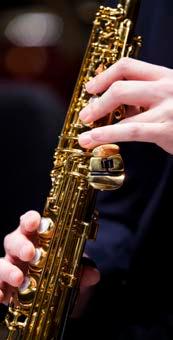




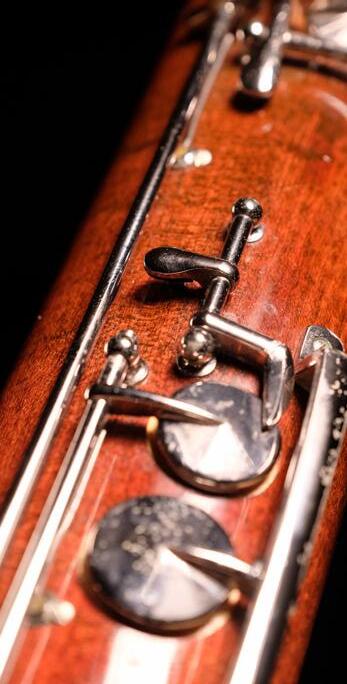



Welcome to the Schwartz Center for Performing Arts. Please turn off all electronic devices. Photography, recording, or digital capture of this concert is not permitted.
404.727.5050 | schwartz.emory.edu | boxoffice@emory.edu
Audience Information
The Schwartz Center welcomes a volunteer usher corps of about 40 members each year. Visit schwartz.emory.edu/volunteer or call 404.727.6640 for ushering opportunities.
The Schwartz Center is committed to providing performances and facilities accessible to all. Please direct accommodation requests to the Schwartz Center Box Office at 404.727.5050, or by email at boxoffice@emory.edu.
The Schwartz Center wishes to gratefully acknowledge the generous ongoing support of Donna and Marvin Schwartz.
Paul Bhasin, Conductor
Eric Nelson, Director of Choral Studies
Jon Easter, Interim Director, Emory Choirs
The Merian Ensemble, Guest Soloists
The Merian Ensemble: Christina Smith, flute; Emily Brebach, oboe/english horn; Elisabeth Remy Johnson, harp; Juliana Darby, clarinet; and Jessica Oudin, viola
Wednesday, February 26, 2025, 8:00 p.m.
Emerson Concert Hall
Schwartz Center for Performing Arts
Living Room Music (1940) John Cage
I. To Begin (1912–1992)
II. Story
III. Melody
IV. End
Festive Overture, op. 96 (1954)
Te Deum in C Major, Hob.XXIIIc:2 (ca. 1799)
Dmitri Shostakovich (1906–1975)
Franz Joseph Haydn (1732–1809)
L’Arlésienne Suite No. 2 (1872) Georges Bizet
I. Pastorale (1838–1875)
II. Intermezzo (ed. Ernest Guiraud)
III. Menuet
IV. Farandole
Metamorphosis Elizabeth Younan (Emory Commission, World Premiere) (b. 1994)
Performed with the Merian Ensemble, soloists
Billy the Kid Ballet Suite (1940) Aaron Copland
I. The Open Prairie (1900–1990)
II. Street in a Frontier Town
III. Card Game at Night
IV. Gun Battle
V. Celebration after Billy’s Capture
VI. Billy’s Demise
VII. The Open Prairie (epilogue)
Notes on the Program by Ken Meltzer unless otherwise noted
John Cage’s Living Room Music, for percussion quartet, embodies both the American composer’s avant-garde aesthetic, and his exploration of performers’ latitude. The first (To Begin) and last (End) movements may be performed with “(a)ny household objects or architectural elements.” In the second movement (Story), the members of the quartet recite Cage’s setting of Gertrude Stein’s “The World is Round.” Melody, the optional third movement, “may be played on any suitable instrument: wind, string or keyboard, prepared or not.”
Dmitri Shostakovich composed his Festive Overture in the autumn of 1954. A concert was scheduled to take place at the Moscow Bolshoi Theater in early November of that year, in celebration of the 37th anniversary of the October Revolution. As the concert date approached, Vasili Nebol’sin, a conductor at the Bolshoi, realized that there was no piece on the concert program to commemorate the historic event. At Nebol’sin’s request, Shostakovich agreed to compose a brief overture.
Shostakovich dashed off his Festive Overture, all the while chatting and making jokes. As Shostakovich completed each page of the score, a courier delivered the music—the ink still wet—from Shostakovich’s apartment to Nebol’sin at the Bolshoi. On November 6, 1954, Alexander Melik-Pashayev conducted the Bolshoi Orchestra in the world premiere of Shostakovich’s Festive Overture. Some commentators have suggested that the energy and high spirits of the Festive Overture relate not just to the anniversary of the October Revolution, but also the death in 1953 of Shostakovich’s long-time nemesis, Soviet dictator Joseph Stalin.
L’Arlésienne Suite No. 2 (1872) (ed. Ernest Guiraud)
In 1872, Léon Carvalho, impresario of the Paris Théâtre du Vaudeville, contacted French composer Georges Bizet. The theater was presenting Alphonse Daudet’s play, L’Arlésienne, and Carvalho wanted Bizet to write a series of pieces to serve as incidental music to the action, a tragic love story set in Provence (Daudet’s play also served as the basis for Francesco Cilea’s 1897 opera, L’Arlesiana). In just a few weeks’ time, Bizet composed the incidental music.
According to Daudet, the October 1, 1872 premiere of his play L’Arlésienne “was a most dazzling failure, with the most charming music in the world.” Bizet soon enjoyed great success with an orchestral suite he created from the play’s incidental music. After Bizet’s death his friend, Ernest Guiraud, fashioned a second L’Arlésienne Suite.
I. Pastorale
II. Intermezzo
III. Menuet (from Bizet’s 1867 opera, Le jolie fille du Perth)
IV. Farandole
Haydn composed the Te Deum for Empress Marie Therese, wife of Emperor Francis. Marie Therese, a great admirer of Haydn’s music, was also an accomplished singer. The Empress gave private performances of soprano solos from Haydn masses, as well as the Austrian composer’s oratorios The Creation (1798) and The Seasons (1801). Haydn scored his setting of the Te Deum, an early Christian hymn of praise, for mixed chorus and orchestra. Two glorious C Major episodes frame a brief sequence in C minor, a setting of the text “Te ergo quaesumus, famulis tuis subveni, quos pretioso sanguine redemisti” (“We therefore pray to You, help Your servants, whom You have redeemed with Your precious blood”). The concluding portion includes a grand double fugue, leading to the radiant final measures.
O God, we praise you; O Lord, we acclaim you. Eternal Father, all the earth reveres you. All the angels, the heavens and the Powers of heaven, Cherubim and Seraphim cry out to you in endless praise: Holy, Holy, Holy Lord God of hosts, heaven and earth are filled with the majesty of your glory. The glorious choir of Apostles sings to you, the noble company of prophets praises you, the white-robed army of martyrs glorifies you, the Holy Church throughout the earth proclaims you, Father of boundless majesty, with your true and only Son, worthy of adoration, and the Holy Spirit, the Paraclete. You, O Christ, are the King of glory, you are the Father’s everlasting Son; when you resolved to save the human race, you did not spurn the Virgin’s womb;
you overcame the sting of death and opened wide the Kingdom of Heaven to those who put their faith in you. You are seated at the right hand of God in the glory of the Father. We believe you are the Judge who is to come.
And so we beg you, help your servants, redeemed by your most precious blood.
Number them among your saints in eternal glory. Save your people, Lord, and bless your inheritance. Shepherd them and raise them to eternal life. Day by day, we bless you and praise your name for endless ages evermore. Be gracious, Lord, on this day, and keep us from all sin. Have mercy on us, O Lord, have mercy. May your mercy be upon us, Lord, as we place our trust in you.
In you, O Lord, I rest my hope: let me never be put to shame.
Program note written by composer Elizabeth Younan
Metamorphosis not only pertinently reflects the revolutionary work of naturalist Maria Sibylla Merian—the ensemble’s namesake—but also encapsulates one of my absolute favorite processes of composition: that of organicism, whereby a musical seed permeates the entire work. The first movement is slow, albeit filled with tension as the opening melody presented by the oboe continuously morphs and transforms throughout the Merian Ensemble and the orchestra. The second movement is vibrant and joyful, and features imitative textures between the soloists and the orchestra. It brims with hope as the work alternates between ensemble and tutti sections. Ultimately, Metamorphosis serves as a metaphor for the life cycle of the caterpillar, the insect which Merian herself studied intensely. The first movement functions as the caterpillar gradually transforming in its cocoon, which bursts forth as a butterfly to explore its vibrant—and musical—landscape. This work is dedicated to the Merian Ensemble, Emory University, and the Emory Youth Symphony Orchestra.
At the age of twenty, American composer Aaron Copland journeyed to Paris where he worked with the legendary teacher, Nadia Boulanger. While in Europe, Copland was greatly impressed by the music of Russian composers Modest Mussorgsky and Igor Stravinsky. Upon his return to the United States in the early 1920s, Copland decided that he would attempt to create a parallel genre; that is, to compose music “that would immediately be recognized as American in character.”
Copland’s desire to compose in an “American” fashion ultimately manifested itself in two (not necessarily independent) compositional styles. One technique featured the incorporation of jazz into classical works. The other method, and the one for which Copland is best known, involved the use of American folk subjects and/or melodies, as exemplified by such works as Rodeo (1942), the Lincoln Portrait (1942), and Appalachian Spring (1944).
Another work in the latter genre is the ballet Billy the Kid (1938). Copland composed the score at the request of Lincoln Kirstein for his Ballet Caravan. When the Brooklyn-born Copland expressed some reservations about whether his life experience equipped him to compose music about the Wild West, Kirstein replied that the famous outlaw depicted in the ballet had, too, been born in Brooklyn! At Kirstein’s suggestion, Copland included a number of cowboy songs in his ballet score.
The Ballet Caravan presented the world premiere of Copland’s Billy the Kid at the Chicago Civic Opera House on October 16, 1938. In that performance, Copland’s score was performed by piano duet. Copland later created a six-movement suite for orchestra from the original ballet score. William Steinberg conducted the NBC Symphony in the November 9, 1940 premiere of the Billy the Kid Suite.
The Suite’s episodes are performed without pause:
I. The Open Prairie
II. Street in a Frontier Town
III. Card Game at Night
IV. Gun Battle
V. Celebration after Billy’s Capture
VI. Billy’s Demise
VII. The Open Prairie (epilogue)
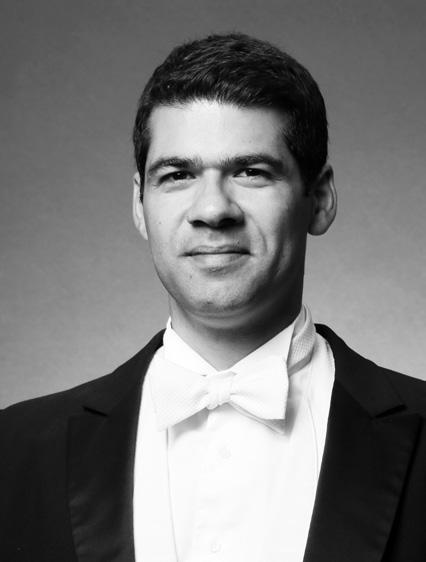
Paul Bhasin serves as Director of Orchestral Studies at Emory University where he holds the Donna and Marvin Schwartz Professorship in Music. In this capacity, he conducts the Emory University Symphony Orchestra and Emory Youth Symphony Orchestra, oversees music research programs, and teaches conducting. Praised for his “crisp, clear” conducting and “highly expressive” interpretations, Bhasin’s career began when he won the Yamaha Young Performing Artist Competition in 1998. As a conductor, composer/arranger, and instrumentalist, Bhasin has collaborated with diverse institutions including the San Francisco Symphony, Virginia Symphony, “President’s Own” US Marine Band, the International Computer Music Conference, St. Louis Opera, New World Symphony, Interlochen Arts Academy, International Dvořák Festival (Prague, Czechia), and Chicago Civic Orchestra. Bhasin has performed on National Public Radio, Detroit PBS-TV, and at the Aspen, Tanglewood, Grand Teton, and Ravinia music festivals. Bhasin has recorded as a trumpeter and conductor for the Centaur, ACA, and Interscope record labels.
Bhasin also serves as Music Director and Conductor of the DeKalb Symphony Orchestra and Atlanta Chamber Music Festival. An avid educator, Bhasin has collaborated with the Chicago Symphony Orchestra’s Musicorps program, the Grammy-winning sextet Eighth Blackbird, led honor orchestras and bands (including at the All-State level), and has presented at national conferences including the Midwest Orchestra Clinic and the National Music Teachers Association Conference. Bhasin’s trumpet students have won first prize at major competitions including the National Trumpet Competition.
Bhasin composed and conducted the orchestral scores to the motion picture Sister Carrie (recently premiered at the Gene Siskel Center in Chicago) and Hogtown (award winner at the Berlin, Los Angeles, and Nashville International Black Film festivals) which was named a “Critic’s Pick” and one of the “Top 10 Films of 2016” by the New York Times (both films stream on Amazon Prime Video). He received his musical education from Northwestern University, the University of Michigan, and the University of Wisconsin-Madison.

Jon Easter is celebrated for his moving expressivity and musical artistry across multiple instruments and as a conductor. He performs regularly with Emory’s Concert Choir and Atlanta Master Chorale, serving as both accompanist and assistant conductor. His expertise has also been showcased in performances with the Atlanta Master Chorale at ACDA and AGO conventions at regional and national levels.
Throughout his career, Easter has held significant positions as organist and choir director at Saint Paul’s by the Sea Episcopal in Jacksonville, Florida, Roswell Presbyterian Church in Roswell, Georgia, and Saint Mark United Methodist Church in Atlanta, Georgia. He now enjoys life as a sought-after substitute and interim organist, in high demand for his versatility and reliability. His commitment to musical excellence extends to solo and collaborative organ recitals across the Southeast, where he consistently demonstrates both technical mastery and artistic expression.
His collaborations with renowned singers, including multiple recitals with Jamie Barton—featuring a recording of Lee Hoiby’s Bon Appétit! and participation in the Metropolitan Opera virtual Gala—further highlight his distinguished career. Easter’s recordings include several Atlanta Master Chorale CDs, the University of North Florida Chamber Singers, and Crossroads Trumpets: Masterworks for Trumpet Ensemble. These contributions solidify his reputation as a dynamic and versatile musician, making significant impacts across various musical landscapes.
Easter holds an undergraduate degree in organ performance from Shorter College, where he studied with Peter Dewitt. He earned double master’s degrees in choral conducting and organ performance from Emory University under Eric Nelson and Timothy Albrecht. He also pursued additional conducting studies with Donald Nally and Martha Shaw and organ studies with Bill Evans and Alan Morrison.
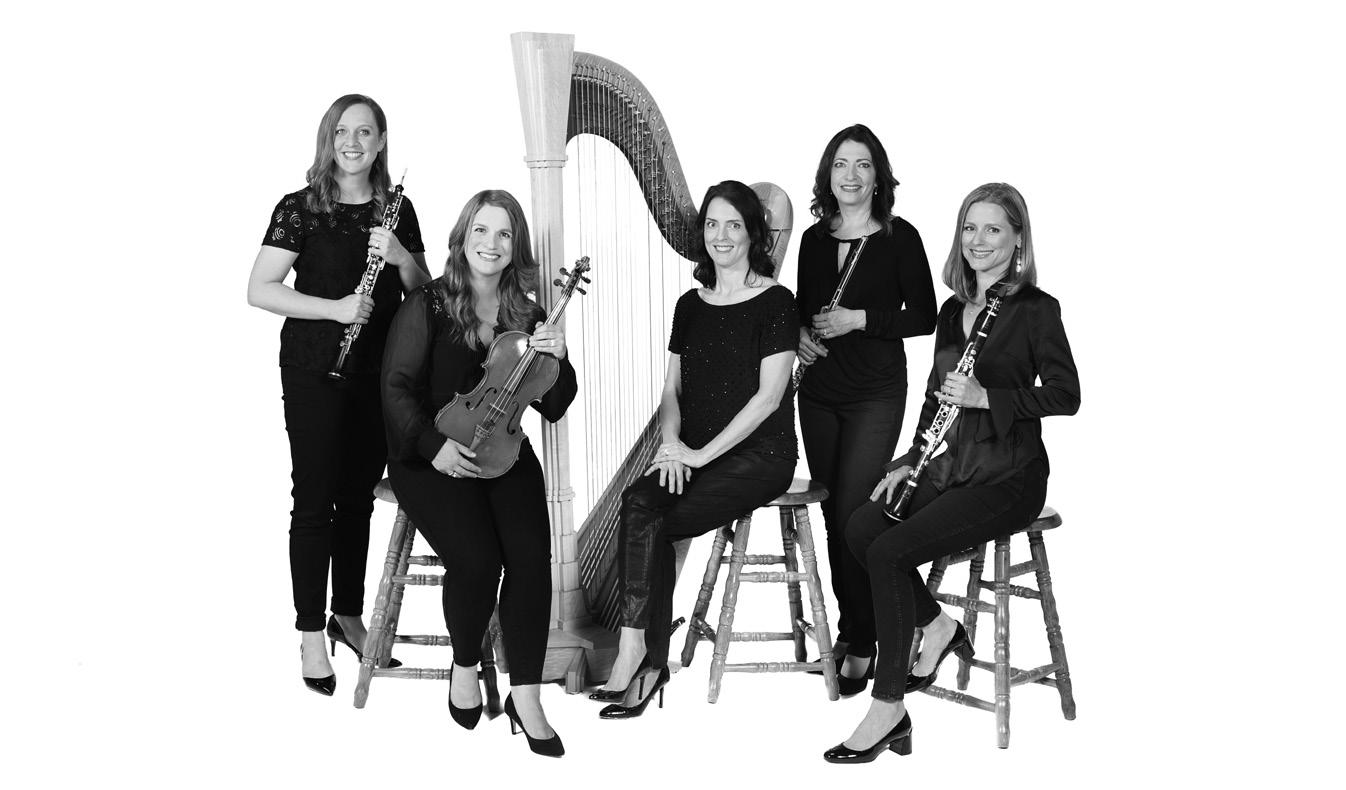
The Merian Ensemble is a chamber music group dedicated to promoting the standard of an inclusive repertoire. The group was formed in 2018 by five women musicians from the Atlanta Symphony Orchestra, determined to counteract the striking dearth of music by women composers programmed in classical music settings. Through their “Listen: Works by Women” initiatives, the Merian Ensemble performs the abundant repertoire of music by women and commissions a new work each year. In addition to traditional concerts, they give outreach performances for school-age children and presentations at libraries and public spaces throughout Atlanta. Their performances have been featured over forty times on NPR’s “Performance Today.” To date, they have commissioned nine new works funded by grants from Agnes Scott College, the American Harp Society, the PRS Foundation, and private donors. They were a recipient of a travel grant from Mid Atlantic Arts Foundation through USArtists International, and their 2023–2024 season was supported by New Music USA’s Organization Fund. Their debut album, “The Book of Spells” on the Navona label, presents their first seven commissioned works and was released in August 2024. Textura notes the “exceptional chamber performances” and “compelling musicianship,” and EarRelevant calls it “one exciting project, gorgeously prepared, played, and recorded.”
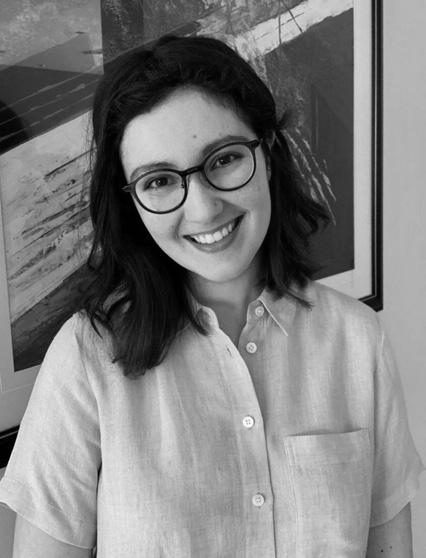
Elizabeth Younan (1994) is quickly gaining a reputation as one of Australia’s finest young composers. Her violin solo “… your heart dreams of spring” is featured on Jennifer Koh’s 2022 Grammy Award–winning album, Alone Together. Younan has composed for the Sydney Symphony Orchestra, the podcast “Lost Women of Science,” and for principal players of the Philadelphia Orchestra.
Younan holds a BMus in composition with First Class Honours and an MMus from the Sydney Conservatorium of Music, where she studied with Carl Vine AO. She graduated from her composition studies at the renowned Curtis Institute of Music with the Charles Miller “Alfredo Casella” Award for composition, and was selected by staff and faculty to be the female graduating speaker for the class of 2021. She studied with Dr. Jennifer Higdon, Dr. David Serkin Ludwig, and Dr. Richard Danielpour as the first Australian composer to be admitted to Curtis in its nearly 100-year history. Younan was recently awarded a prestigious 2024 Australian Universities’ John Monash Scholarship from the General Sir John Monash Foundation, which provides postgraduate scholarships to outstanding Australians to study overseas. She is currently a first year DMA student at the Juilliard School on full-tuition scholarship as a C.V. Starr Doctoral Fellow.
Accolades include a Daniel W. Dietrich II Young Alumni Fund Award from the Curtis Institute of Music and an ASCAP Morton Gould Young Composer Award, among other awards from her home country.
The Emory Youth Symphony Orchestra (EYSO) program was founded in 2005 at Emory University in Atlanta, Georgia. As one of the finest precollege programs in the region, EYSO provides comprehensive orchestral performance opportunities while supporting the pedagogy of school directors and private teachers. All students and parents are offered the opportunity for pre-college counseling, assistance with college and scholarship applications, diverse masterclass and seminar offerings, and financial aid advice. Apart from serving as dedicated members of their school orchestra and band programs, EYSO students go on to study a variety of disciplines at the college level, including top conservatories (Curtis, Juilliard, NEC, Colburn) as well as at nationally-ranked liberal arts colleges and universities. EYSO students are also regular participants in the country’s finest summer music festivals, including Interlochen, Tanglewood, NYO & NYO2, Brevard, Eastern, Sewanee, and others. The EYSO students are coached by Emory faculty including members of the Atlanta Symphony Orchestra, Atlanta Opera and Ballet, as well as the Vega Quartet.
Flute and Piccolo (listed alphabetically)
Beige Bae (Lambert High School)
Eunice Kim (North Gwinnett High School)
Chloe Park (Walton High School)
Oboe and English Horn (listed alphabetically)
Benjamin Lee (Johns Creek High School)
Subeen Lee (Northview High School)
Chloe Rhee (Duluth High School)
Clarinet and Bass Clarinet (listed alphabetically)
Jiho Jun (Lambert High School)
Joseph Lee (Duluth High School)
Suzanne Smith (Mill Creek High School)
Charlie Zhang (Westminster)
Saxophone
Adonis Diaz
Bassoon (listed alphabetically)
Declan Johnston (Buford High School)
Connor Stewart (Pope High School)
Horn (listed alphabetically)
Aarush Gandhi (South Forsyth High School)
Blake Kuhn (Forsyth Central High School)
Daichi Takimoto (Johns Creek High School)
Sarah Woodall (Kennesaw Mountain High School)
Trumpet (listed alphabetically)
Caleb Cannon (Homeschool)
Ben Githanga (Marietta High School)
Shihyun Kim (Chattahoochee High School)
Steven Li (Wheeler High School)
Trombone and Bass Trombone (listed alphabetically)
Dallin Peoples (Flowery Branch High School)
Ugochukwu Nwakanma (Cambridge High School)
Gabriel Silva (Buford High School)
Tuba
Zoë Herring (Walton High School)
Timpani and Percussion (listed alphabetically)
Harrison Buck (Morgan County High School)
Eve Gordon (Westminster)
Jueon Kim (East Coweta High School)
Isaac Lee (North Gwinnett High School)
Piano and Celeste
Michelle Feng (Johns Creek High School)
Harp (listed alphabetically)
Myron Leonard (Charles R Drew Charter School)
Tej Panchal (South Forsyth High School)
Violin (listed alphabetically)
Jaina Alexander (Westminster)
Gabriel Bravo (Harrison High School)
Leonardo Castro-Balbi (Westminster)
Ashley Chang (Duluth High School)
Ellain Chen (Alpharetta High School)
Elena Dagostino (Sequoyah High School)
Ethan Fu (The Paideia School)*
Ryan Han (Lambert High School)
Soel Han (Northview High School)
Dominic Hantula (Pace Academy)
Caroline Huang (Chattahoochee High School)
Brady Huesken (Holy Innocents Episcopal School)
Abhinav Ivaturi (Alpharetta High School)
Ethan Jones (GSMST)
Alexis Kim (GSMST)
Gabriella Kim (Peachtree Ridge High School)
Yejoe Kim (North Gwinnett High School)
Sophia Knudsen (Chattahoochee High School)**
Ellen Kolesnikova (Decatur High School)
Audrey Lee (North Gwinnett High School)
Geonhee Lee (Johns Creek High School)
Ethan Leong (Dunwoody High School)
Amber Li (Johns Creek High School)
Rebecca Ma (Alpharetta High School)
Ellie Millette (Artios Academies of Gwinnett)
Satomi Ono (Northview High School)
David Park (Lambert High School)
Jiyoon Park (McIntosh High School)
Mei Takuno (Northview High School)
Juan Valencia (Duluth High School)
Jiayu Wang (Northview High School)
Olivia Wei (Westminster)
Shicheng Wei (South Forsyth High School)
Ezekiel Werner (Decatur High School)
Evan Xue (Johns Creek High School)
Violin (continued)
Harry Yang (Walton High School)
Hayden Yi (North Gwinnett High School)
Jaden Yim (Johns Creek High School)
Aniston Zhang (Chattahoochee High School)
Jiyu Zhang (Northview High School)
Viola (listed alphabetically)
Sonayon Ayeni (Duluth High School)
Noah Bang (Northview High School)
Achyut Deshpande (Chattahoochee High School)
Shay Hendrickson (Decatur High School)
Victor Huang (Alpharetta High School)
Anika Kailasam (Decatur High School)
Hayoung Kim (McIntosh High School)
Jiyu Kim (Peachtree Ridge High School)*
Joanne Kim (Brookwood High School)
Yujin Kim (GSMST)
Manu Sankaran (Lambert High School)
Jaydon Sritongkham (GSMST)
Athena Yang (GSMST)
Katie Yau (Chattahoochee High School)
Cello (listed alphabetically)
Matthew Chung (McIntosh High School)
Priya Gingrich (Homeschool)
Eric Jiang (Westminster)
Abigail Kim (Johns Creek High School)*
Elijah Kim (Johns Creek High School)
Jason Kim (North Gwinnett High School)
Sophia Madani (McIntosh High School)
Caleb Mani (Lanier High School)
Ethan Nie (Johns Creek High School)
Joshua Park (North Gwinnett High School)
Arun Piyasena (Woodward Academy)
Jonathan Roaquin (Collins Hill High School)
Cello (continued)
Yaocen Shen (Walton High School)
Nile Solomon (Northview High School)
David Zoblisein (Harrison High School)
Bass (listed alphabetically)
Irene Achanti (Alpharetta High School)
Jordan Archer (Decatur High School)
Yusef Henry (Campbell High School)
Alex Na (The Westminster Schools)
Bianca Nicolae (GSMST)
Vivien Panturu (Mill Creek High School)
Hazel Patty (Decatur High School)*
Jakob deRoode (Midtown High School)
** Concertmaster
* Principal
Under the direction of Dr. Eric Nelson, the Emory Choirs represent long-standing traditions in the Emory community, with performances including the annual Festival of Nine Lessons and Carols, solo concerts including a variety of choral repertoire, masterworks with the symphony orchestra, and joint concerts with Emory’s a cappella groups. Jon Easter is serving as interim director of Choral Studies while Dr. Eric Nelson is on medical leave.
Open to all Emory students as well as to members of the Emory community, the University Chorus holds a unique place in Emory life. Music majors and nonmajors, undergraduate and graduate students, faculty and staff, parents and their children, workers and retirees, alumni and neighbors, all come together to rehearse each Monday evening, united by their common love of singing. The chorus regularly collaborates with the Emory University Symphony Orchestra to present major works, including the 2024 performance of Giuseppe Verdi’s Requiem.
Rehearsal Pianist
Gregory Matteson
Soprano
Abby Balson
Lexi Bancroft
Trinitee Dahn
Mariah DeRenzo
Camille Douglass
Amy Dunagin
Cathy Ethridge
Alejandra Ferreira
Ariel Gale
Candy Gao
Vivien Huang
Audrey Isakov
Elise Isakov
Katie King
Stephanie Lin
Yajie Ma
Morgan McNair
Naomi Newton
Lynn O’Neill
Elianna Paljug
Divya Pereira
Zoë Pollock
Anya Qin
Diana Ricketts
Sophia Ricketts
Sonia Sathe Ryland
Karina Saldivar
Delia Savin
Elaine SeeToh
Arushi Sharma
Hlina Temesgen
Elena Vallis
Sarah Wiley
Serena Zhou
Alto
Carol Allums
Sophia Barthel
Hannah Baskin
Lydia Bearss
Lily Clemente-Cong
Gloria Coble
Kimiko Darcy
Carter Douglas-Brown
Rebecca Follman
Lillian Friedman
Emma Gile
Julia Green
Emily Griswold
Rita Helfand
Bryn Higdon
Anika Hofmeister
Alto (continued)
Audrey Howell
Alina Huang
Mila Kocic
Olivia Leu
Valerie Loichot
Selene Percher
Rose Petta
Lynn Rogers
Abby Rollins
Emma K. Shibley
Mary Slaughter
Caroline Smith
Rosalind Staib
Amber Tejeda
Cathy Toren
Catalina Varela
Vicki Wang
Phyllis Weiss
Jessie Zhu
Tenor
Pranav Anand
Charlie Byrne
Sahrudh Dharanendra
Michael Diebert
Anthony Gacasan
Chuck Hagel
Thane Henschel
Davis Husk
Andy James
Tyler Krug
John Lin
Charles Matthews
Matthew C. Nails
Jack Nickles
Jonathan Owen
Aidan Park
David Rogers
Stephen Rogers Bass
Jonathan Ackleh-Tingle
Daniel Bell
Terry Chorba
Sam Collier
Kushal Daruwala
Paul DeSandre
Isaac Feiner
Joe Follman
Jordan Friedman
Alex Isakov
Dennis Jones
Michael Lammons
John Lilly
Jeffrey Lin
George Lin Wu
Scott Matthews
Jacob Mercer
Geoffrey Middleton
Ed Morris
Tom Morris
Cade Nabors
Renard Sexton
Stephen Sexton
Michael Sorkin
James Steffen
David Terry
Patan Tippitak
David Travis
Daniel Weiss
Bryan Wu
Max Yost
Minghao Yu
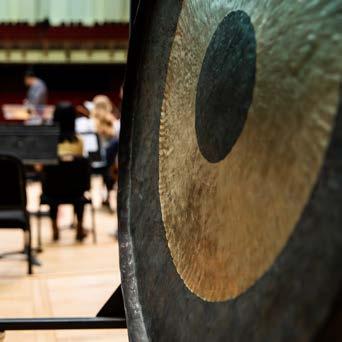

Music at Emory brings together students, faculty, and world-class artists to create an exciting and innovative season of performances, lectures, workshops, and master classes. With more than 150 events each year across multiple Emory venues, audiences experience a wide variety of musical offerings.
We hope you enjoy sampling an assortment of work from our student ensembles, community youth ensembles, artists in residence, professional faculty, up-and-coming prodigies, and virtuosos from around the world.
music.emory.edu
